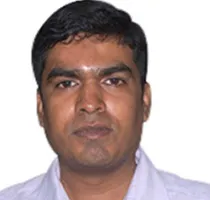-
CENTRES
Progammes & Centres
Location
 PDF Download
PDF Download 
Vidisha Mishra, Terri Chapman, Rakesh Sinha, Suchi Kedia and Sriram Gutta,
“Young India and Work: A Survey of Youth Aspirations,” The Observer Research Foundation
and The World Economic Forum, 2018.
Advanced technological developments are reshaping production processes, global value chains, employment relations, and the nature of work itself. In this context, 1.3 million people enter the working age population in India every month.
India has an opportunity to leverage emerging technologies and digitisation to create a desirable and productive future of work for its youth. In order to realise this opportunity, and the economic growth potential presented by the country’s demographic advantage, it is important to understand the aspirations of India’s youth and identify possible misalignments between their career and educational ambitions and the available opportunities.
This report presents findings from the Youth Aspirations in India Survey in which 5,764 youth between the ages of 15 and 30 were asked about their employment, education and skilling aspirations. Data was collected from seven states in India, including Andhra Pradesh, Assam, Maharashtra, Odisha, Uttar Pradesh, West Bengal, and Delhi.
The central questions of the survey and this report include:
1. What are the career aspirations and job preferences of India’s youth?
2. What are the perceptions of India’s youth around the adequacy and relevance of their education, skill sets, and preparedness for the labour market?
3. How do youth perceive employment and work transformations as well as the availability of adequate and relevant opportunities for them in view of these transformations?
4. What are the barriers faced by youth in meeting their education, skilling, and employment aspirations?
5. What strategies and policies are needed to bridge misalignments and information asymmetries in the labour market?
6. How can capabilities be best enhanced to ensure youth in India are able to meet their career aspirations?
Suchi Kedia is Community Specialist, Regional Agenda — India and South Asia, World Economic Forum.
Sriram Gutta is Community Lead, Regional Agenda — India and South Asia, World Economic Forum, Geneva.
The views expressed above belong to the author(s). ORF research and analyses now available on Telegram! Click here to access our curated content — blogs, longforms and interviews.

Vidisha heads programmatic and substantive community engagement at GSI, including partnerships with the G20 and G7 processes and associated multilateral groups. She brings a decade ...
Read More +
Terri Chapman is Programme Manager at ORF America. Her research interests include urban and regional development welfare analysis and inequality.
Read More +
Rakesh Kumar is a Associate Fellow at ORF. He has done PGDCA (Post Graduation Diploma in Computer Application) from CMC, Delhi Centre and CIC(certificate in ...
Read More +